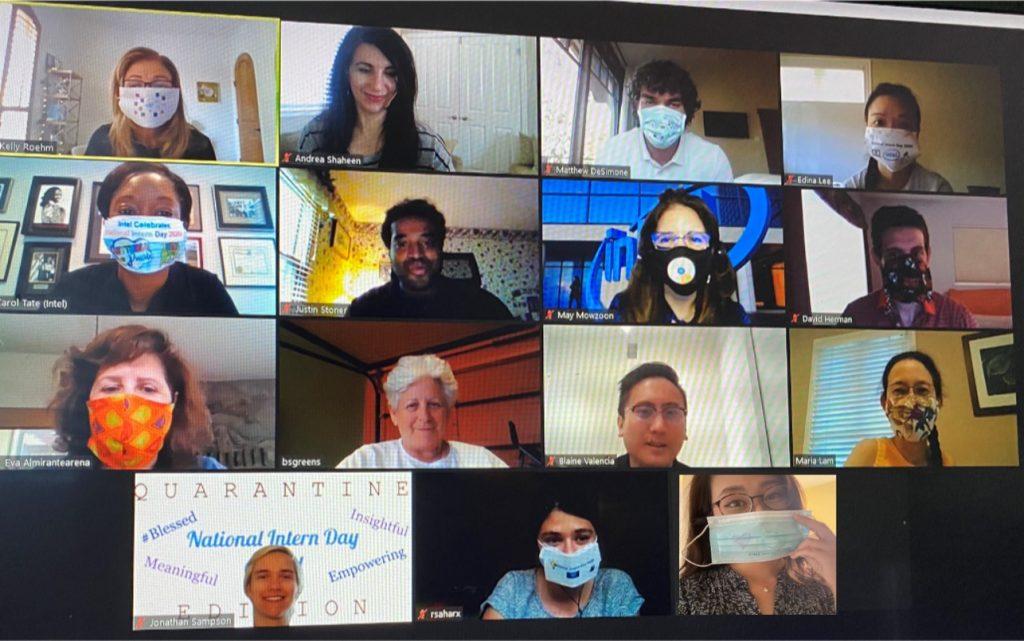Reimagining an Internship Program in a Time of COVID-19

As you know, 2020 has been a different sort of year.
When it came time to finalize the summer internship program, Intel’s Law & Policy team faced a decision: cancel or go virtual?
Given the importance of this program for the team’s goal to build out a robust network of exceptional diverse talent, organizers decided to hold a virtual summer program (motivated in part by the virtual initiative led by Sandra Rivera, Executive VP and Intel Chief People Officer).
So, the Law & Policy team decided to go virtual and go big: students would work virtually, with the General Counsel’s Growth Acceleration Team (GAT), worldwide. A central idea behind GAT is to empower team members to collaborate with any colleague who can help keep Intel legal, ethical, respected and competitive, in ways that drive growth.
Within weeks, the Law & Policy team had set up mentorships, meetings, and had assignments from lawyers in the U.S. and abroad with GAT members in Ethics & Legal Compliance, Global Markets & Trade, Corporate Legal, and the Intel Legal Department. Exposure to this variety of legal work during a summer internship is rare.
The organizers set up virtual meetings with Intel’s General Counsel and several other GAT senior leaders including the Corporate Secretary, the Chief Compliance Officer, and several VPs. For students still planning their career paths, this was an unprecedented opportunity to speak with Intel’s senior leaders.
This year student interns came from undergraduate and law schools across the country: the Sandra Day O’Connor College of Law (Arizona State), UC Berkeley Law, Columbia Law, Duke University, Santa Clara University and Santa Clara Law.
Learn at Intel
The interns worked on legal issues relating to antitrust, corporate governance, ethics and compliance, mergers and acquisitions, privacy, and trade. This summer, the students interns also developed real life skills through workshops in communications excellence, presentation delivery, personal finance training, and performance review preparation.
Establish New Networks
The interns were able to build out their professional networks over the summer. With mentors, lawyers assigning work, and senior leaders, the students were able to meet a broad array of professionals within Intel. They also met other students within the Intel program, allowing them to build relationships with future lawyers and policy makers interested in tech. Finally, for the law students who came to Intel from a traditional law firm summer associate program, they were able to build out a network of contacts for an important law firm client (Intel). All of this will help them succeed as they progress in their careers.
Imagine the Possibilities
Intel’s Law and Policy Group has a goal of building an extraordinary team with exceptional, diverse people. The various summer programs within the group, including one focused on diversity and inclusion, permit us to find high potential students and help them focus on tech while they are still in school. This helps Intel have a larger pool of qualified candidates when we hire.
In addition to the experiences described above, to learn about non-legal Intel internship positions, please explore here.

